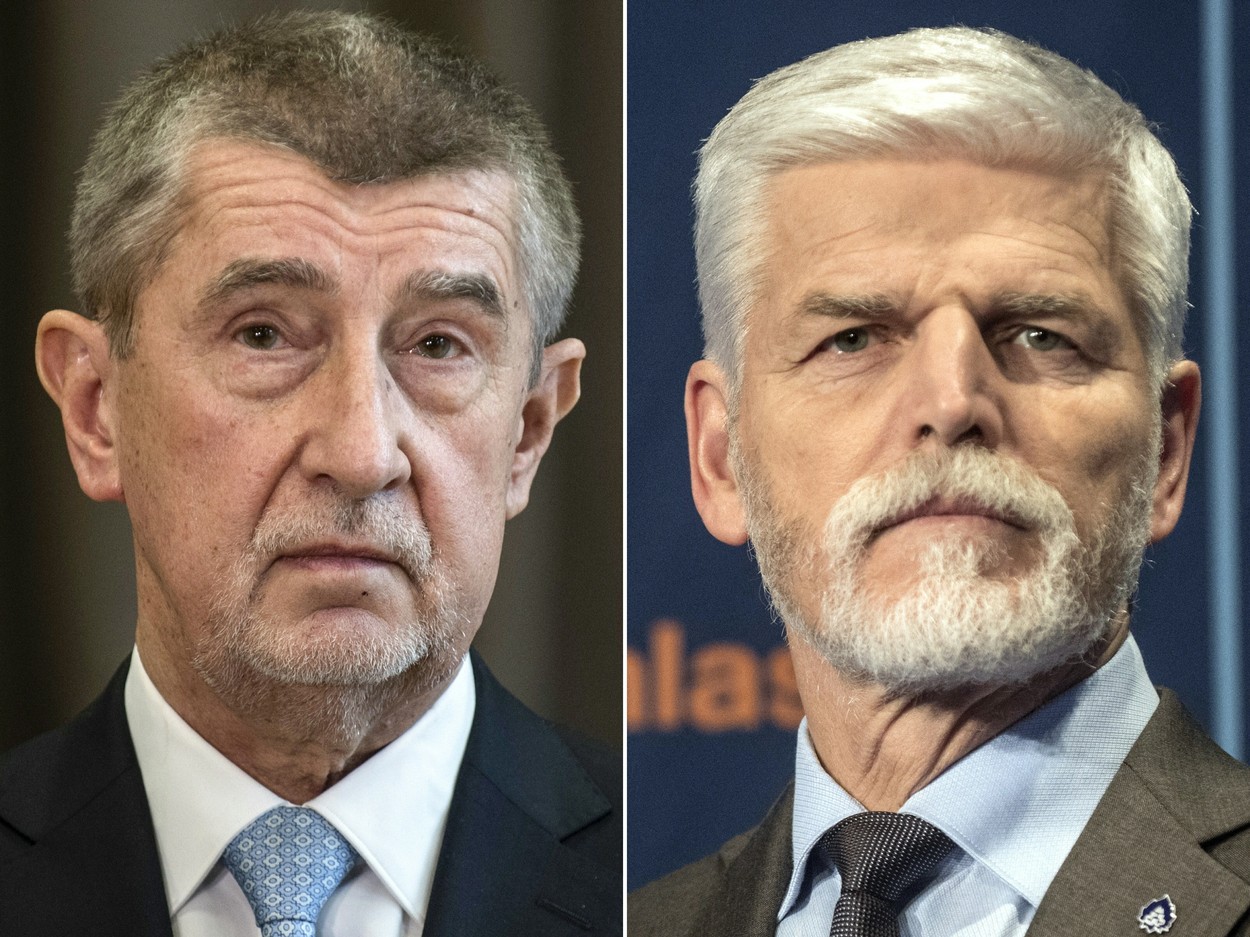
Reserve General Petr Pavel is slightly ahead of former Prime Minister, billionaire Andrey Babis after the first round of presidential elections in the Czech Republic.
The results of 99.99% of constituencies show that Petro Pavel won with 35.39% of the votes, ahead of Andrei Babish with 35.00%, Reuters and News.ro agencies report.
The role of the Czech president is largely ceremonial, but the head of state appoints the government, chooses the head of the central bank and the judges of the Constitutional Court, and is the commander-in-chief of the armed forces.
Petro Pavel, 61, is pro-Western and supports the continuation of military aid to Ukraine, as well as the adoption of the euro.
Babis, who has built a chemical, agricultural and media empire, would be less of a change because he shares incumbent President Milos Zeman’s warm relationship with Hungarian Prime Minister Viktor Orban, who is at loggerheads with European Union partners over the right-wing state.
68-year-old Andriy Babish spoke out against increasing military aid to Ukraine and said on Saturday that he would try to organize a peace summit.

Andrei Babish and Petr Pavel (Photo: Michal Cizek / AFP / Profimedia)
Immediately after the partial results were announced, Pavlo called Babis a populist and declared that he is a threat.
“The danger is that we will begin to slide not only towards populism, but also begin to deviate from the course that we have followed for the past 30 years, which is clearly pro-democratic, pro-Western, pro-European,” he said.
Analysts give Pavel an advantage over Babis in the second round because he is likely to attract more of those who voted for the other six candidates who lost in the first round.
Economics teacher Danuse Nerudova was in third place with 13.9%. She conceded defeat and congratulated Paul, saying she would meet with him to support him.
“There is still a big problem here, and his name is Andrii Babish,” she told supporters and journalists.
Pavla was backed by the center-right cabinet, while Babis, whose ANO party is the largest in parliament, called the vote evidence of dissatisfaction with the government’s response to high inflation and energy prices.
Running with Zeman’s support, Babis promised to put pressure on the cabinet to provide more assistance to households.
“Pavel would only fulfill the government’s will,” Babis said after the vote. “This anti-social government wants to raise our taxes.”
Two former members of the Communist Party
Some voters were disappointed that the winners of the first round were members of the Communist Party before its rule ended in 1989.
Babis worked in foreign trade and was registered as a Communist-era secret police informant, which he denies. Pavlo began his military career in the 1980s, trained in military intelligence.
Babish attacked Pavel, saying that the only communist-era intelligence officer in power in Europe was Russia’s Vladimir Putin.
During his tenure as prime minister, the European Commission found Babis to have a conflict of interest due to subsidies paid to his Agrofert business empire. He was acquitted this week of EU subsidy fraud.
The winner of the election will replace Miloš Zeman, a veteran of Czech politics known for his sometimes undiplomatic language, his controversial views, and his weakness for alcohol. Having led the country since 2013, his last presidential term ends in March.
The second round of voting will take place on January 27 and 28.
Read also:
- Former Prime Minister of the Czech Republic Andrej Babis was acquitted in the corruption case that marked the last years of his mandate / Elections in 4 days
- Andrej Babis leads the poll ahead of next week’s presidential election in the Czech Republic
- Former populist Prime Minister Andrej Babis is leading in the first round of Czech presidential elections
Source: Hot News
Ashley Bailey is a talented author and journalist known for her writing on trending topics. Currently working at 247 news reel, she brings readers fresh perspectives on current issues. With her well-researched and thought-provoking articles, she captures the zeitgeist and stays ahead of the latest trends. Ashley’s writing is a must-read for anyone interested in staying up-to-date with the latest developments.